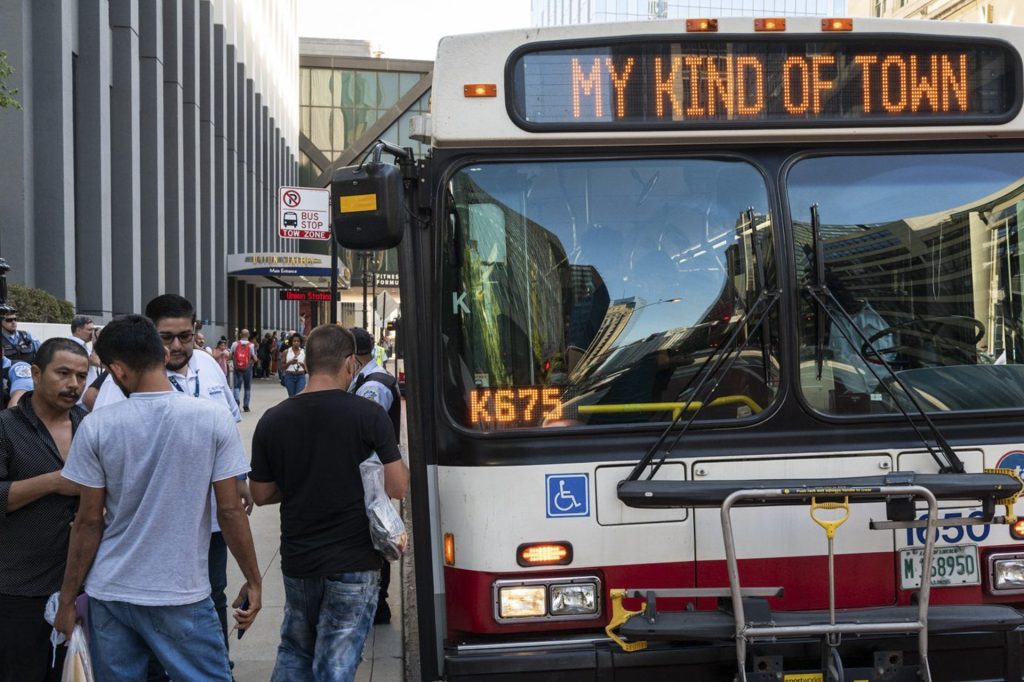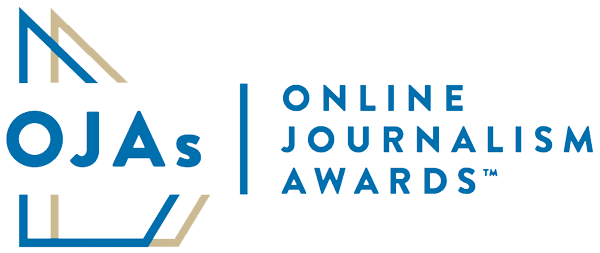
Borderless Magazine, a member-supported newsroom reimagining immigration coverage in Chicago, won the Gather Award in Community-Centered Journalism in the 2023 Online Journalism Awards for their experiments with field canvassing techniques to better understand Spanish-language audiences.
This impressive effort started with two canvassers who connected with Spanish speakers in four neighborhoods over 12 weeks and led to a detailed guide for other news outlets eager to apply new engagement tools. The project focused on three goals: conducting a survey to understand gaps in coverage, collecting contact information for a subscriber list and distributing print versions of the magazine’s stories. Canvassers had conversations in public areas like a train station, by knocking door to door and through community events.
The Borderless Field Canvasser Playbook, written by Executive Director Nissa Rhee with support from Diane Bou Khalil and Michelle Kanaar, outlines the team’s process. Take a look for guidance on defining the scope of work, hiring canvassers, prioritizing locations and documenting the work. (Strong Tip: Recruit canvassers who live in the neighborhoods! They will know the most effective or appropriate places to talk to strangers.)
Here’s more perspective from behind the scenes with Nissa.
As a multilingual news outlet based in Chicago, Borderless Magazine reports on immigration and immigrant communities. We are serving audiences that many news outlets have deemed not just “hard to reach” but also simply not worth reaching.
We know firsthand there are large obstacles for news outlets like Borderless to overcome in order to serve our communities. People’s longstanding distrust of the media, limited internet access and reliance on social media and nontraditional news sources (like flyers or church leaders) for information are just a few examples of what journalists need to consider when trying to engage with their communities.
We began experimenting with field canvassers to help overcome these obstacles and build bridges with communities that the media have ignored for too long.
We learned that using field canvassers can be an inexpensive and impactful way for local news outlets to connect with disinvested communities. We released a guide for newsrooms who want to replicate our work and are expanding our work with field canvassers this year.
We envision creating a national program akin to City Bureau’s Documenters program, which would allow news outlets nationwide to use field canvassers to serve their communities better. (Email nissa@borderlessmag.org if you’re interested in participating or funding this work.)
It was an incredible honor and surprise to win the award! Our engagement reporter, Diane Bou Khalil, and I were lucky enough to accept the award in person. We were beaming for the rest of the night.
I’ve been impressed by ProPublica’s human-centered coverage of Wisconsin’s dairy industry and the exploitation of immigrant workers. Here’s a recent story: When Immigrant Dairy Farm Workers Get Hurt, Most Can’t Rely on Workers’ Compensation
Launched in 2000, the Online Journalism Awards are the only comprehensive set of journalism prizes honoring excellence and innovation in digital journalism around the world. The call for entries for the 2024 awards will be open April 4–May 9.
Explore the 2023 winners and finalists Volunteer with the OJAsThe Online Journalism Awards™ (OJAs), launched in May 2000, are the only comprehensive set of journalism prizes honoring excellence in digital journalism around the world.

Posted By
Karolle Rabarison
Categories
Stories